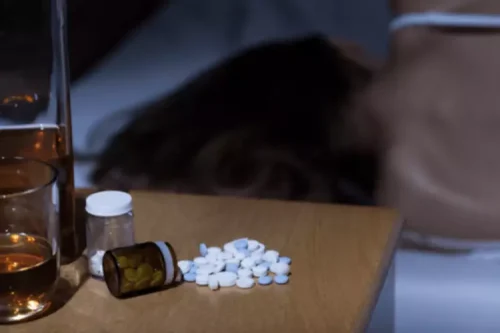Neither person would be considered a regular drinker, but when they do drink they have somewhat different motives. If you’re drinking socially, but a lot, you might be entering into problematic territory. You should be wary if you cross the line into what’s called “heavy drinking,” said Lander. This is more than four drinks a day or more than 14 drinks in a week for men, and more than three drinks a day or more than seven drinks a week for women, he said.
Social Drinking vs. Alcoholism
Aside from the number of drinks you social drinking problem might be consuming, there are many signs you may be in problem drinking territory, according to Lander. A reliable tool for recognizing these patterns is the AUDIT (Alcohol Use Disorders Identification Test), which can help gauge if one’s drinking habits fall into the problematic category. Our Treatment Advisors are available 24 hours a day to help you or a loved one access care. We’re ready to make sure you have the support you need to achieve lifelong recovery. A person does not need to show all these signs to have a problem.
Warning Signs Social Drinking May Be Turning into Problem Drinking
“In some ways, not drinking at all is easier because you take the decision-making out of it,” says Treloar Padovano. Having a hard line to draw might simplify drinking less, rather than having to decide each time how much (or how little) you plan on drinking. While you don’t need to discuss your drinking habits with everyone, bringing a few friends in on your intention is a good idea, says Treloar Padovano. “Find a believer,” she says, or someone who is supportive of you. Do you find yourself consistently drinking more alcohol than your friends or family during social gatherings?
Transitioning from Occasional to Social Drinking: A Slippery Slope
Social drinking refers to drinking alcohol only in social contexts. One study refers to social drinking as drinking to celebrate special occasions and have a good time with others. It’s differentiated from personal-effect motives for drinking, which means drinking to escape, avoid, or cope with difficult emotions. If you’re asking what is social drinking and wondering if your drinking habits have become an issue, it’s important to reach out for help.
The Power And Potential Of Endorphins For Alcohol Use Disorder
When the term “high-functioning alcoholic” is mentioned, various types of drinkers often begin to question their own drinking and worry if they fall into Sobriety this category. Part of this confusion is that many individuals are unclear about the differences between social drinkers, problem drinkers, and alcoholics. There is also a lack of awareness of what the true warning signs of alcoholism are. If you feel as though your social drinking or that of a loved one has lead to alcohol abuse, treatment is available.
According to the National Institute on Alcohol Abuse and Alcoholism (NIAAA), “low-risk” drinking for females consists of no more than 7 drinks per week and no more than 3 drinks per sitting. For males, it consists of no more than 14 drinks per week and no more than 4 drinks per day. ” It’s hard to define the lines that separate social drinking, problem drinking, and alcoholism. Some try to put a number to it, such as don’t consumer over this amount of alcoholic drinks and you’ll be fine. Do you keep drinking at the end of an event to keep the party going? If no one joins you after the event, you may find yourself having a nightcap when you go home.
- Drinking socially is deeply embedded in American culture, often seen as a way to relax and connect with others.
- Instead, they’re more like the selective connoisseurs of alcohol.
- Social drinking refers to drinking alcohol only in social contexts.
- A social alcoholic is someone who relies on drinking alcohol in social situations.
- If you consistently choose to drink over fulfilling your responsibilities or find yourself neglecting important relationships, it’s time to reevaluate your priorities.
- For most people who relapse, it can take years to find recovery again, and many never make it back.
- But their habits can vary depending on their situation and culture.
Signs Social Drinking is Becoming a Problem
Social drinking might start out as just drinking here and there to have a good time with friends or celebrate something special. This is why social drinking can so easily transition into problem drinking. This is where the line between social drinking and problem drinking https://ecosoberhouse.com/ can become blurred. Let’s define problem drinking so we can better differentiate between the two. If problem drinking was an issue in your home as you were growing up, you are at greater risk of developing a problem with alcohol.
How Cognitive-Behavioral Therapy in New Jersey Will Improve Your Life
If you the limits of your drinking extend outside of social situations like events, it may be time to examine your relationship with alcohol. ” The following 10 signs can help you clarify if the relationship you have with alcohol is bringing about negative consequences. Heavy drinking can turn deadly, especially when it involves binge drinking. Binge drinkers aren’t always physically dependent on alcohol, but their pattern of drinking can be just as dangerous. When we’re surrounded by friends or acquaintances who regularly partake in social drinking, it’s hard not to get caught up in the vibe. We don’t want to feel alienated from the gathering, so we join in.
This increase in consumption leads to increased tolerance, so you’ll find yourself drinking more to get the same result. The way you view your behaviors and the way others view your behavior can be different. You may feel that your drinking pattern is no different than the company you keep, yet the impact alcohol has on you can be profoundly different. People don’t tend to get angry about things they are not invested in. If you find yourself defending your drinking patterns, it may be time to examine your drinking behavior.
Addiction Resource does not favor or support any specific recovery center, nor do we claim to ensure the quality, validity, or effectiveness of any particular treatment center. No one should assume the information provided on Addiction Resource as authoritative and should always defer to the advice and care provided by a medical doctor. Social drinkers are those individuals who drink in low-risk patterns.




